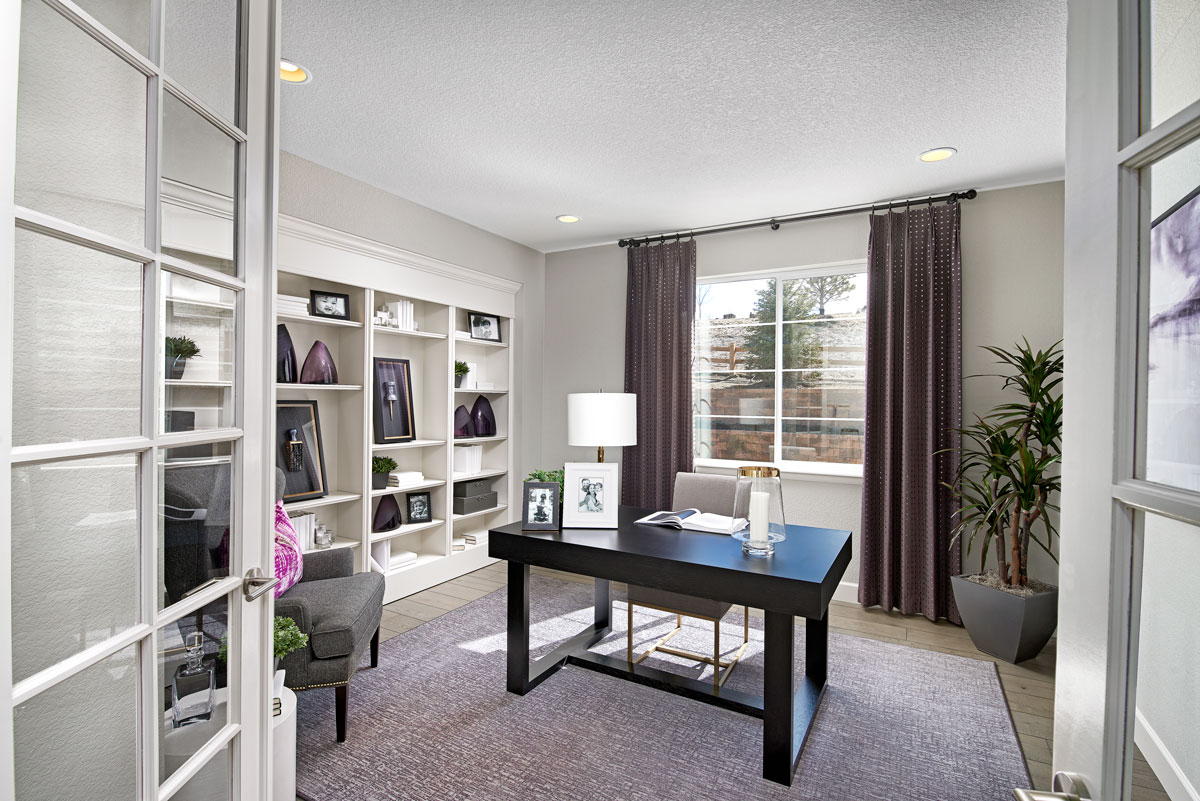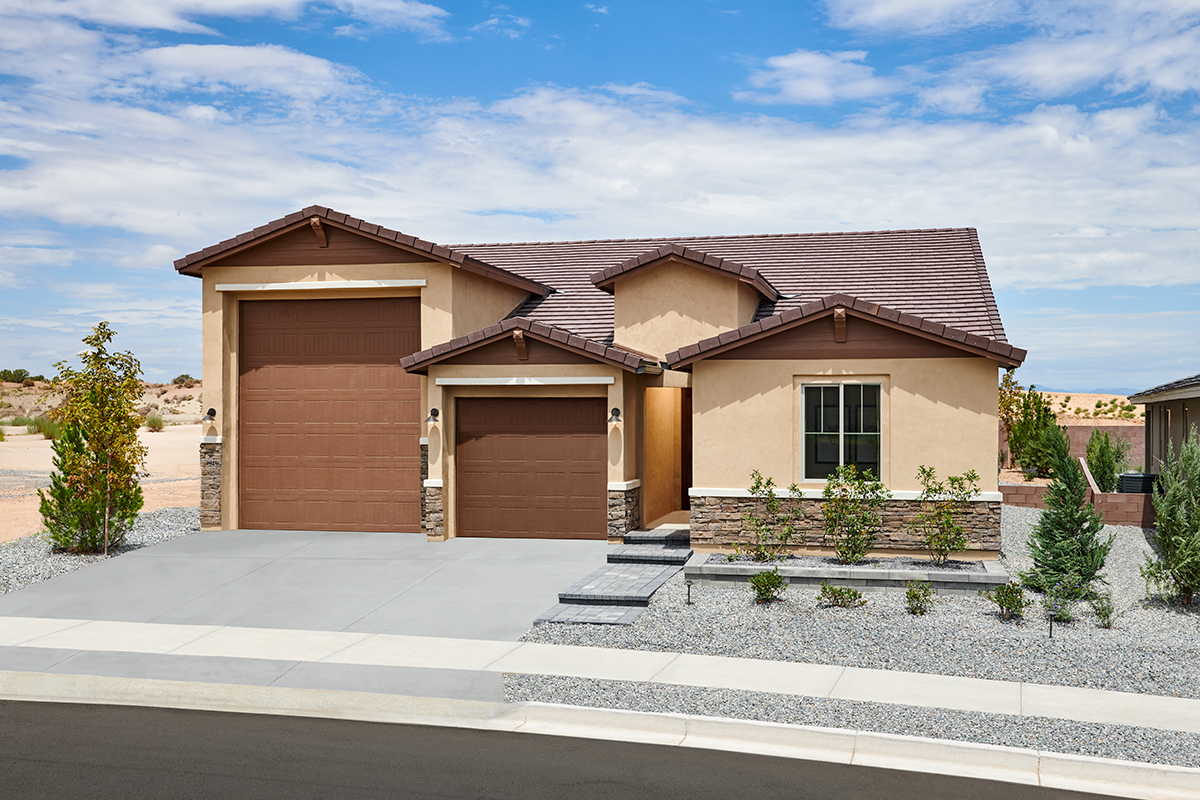
With the rise of remote and hybrid work in the first half of the 2020s, working outside the traditional office setting has become the norm for many Americans. As a result, today’s homebuyers increasingly prioritize dedicated workspaces, with over half preferring homes with at least one office, according to a recent study.
If you’re searching for a home that supports modern work needs, here are key work from home essentials to consider during your house hunt:
Well-appointed home office
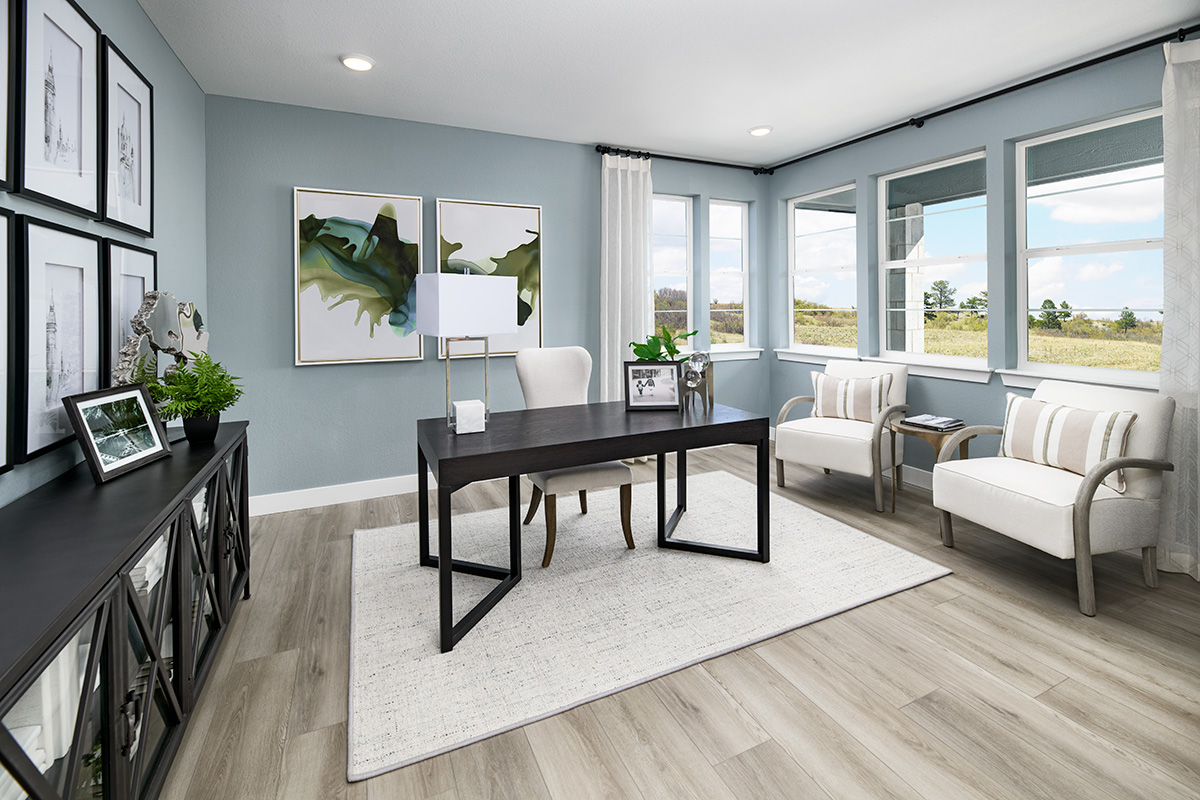
If you regularly work from home, you probably already know that setting up shop in a corner of the dining room or on the kitchen counter won’t always cut it. Long-term productivity calls for a dedicated space built for focus and function. If you’ve ever tried taking Zoom calls from a cluttered kitchen table or attempted to pay attention to colleagues while your family watched TV in the background, you know how vital a private workspace can be. A properly equipped home office allows you to separate professional responsibilities from home life, supporting both your productivity and peace of mind.
A thoughtfully located and well-equipped office space can help you establish structure and focus throughout your workday, while also offering a quiet retreat when you need to concentrate. When scheduling home tours, consider floor plans that offer a study, tech center, spare bedroom, loft, finished basement, or even a guest suite that can be converted into a private office.
Ideally, your dedicated workspace should be located in a quiet spot away from high-traffic areas to help establish clear boundaries between work and home life. A workspace boasting ample natural lighting can also help boost your mood, reduce eye strain, and improve your energy. Add in some built-in shelving, electrical outlets, and smart design features, and you’ve got a home office that supports both comfort and productivity.
Multiple work zones
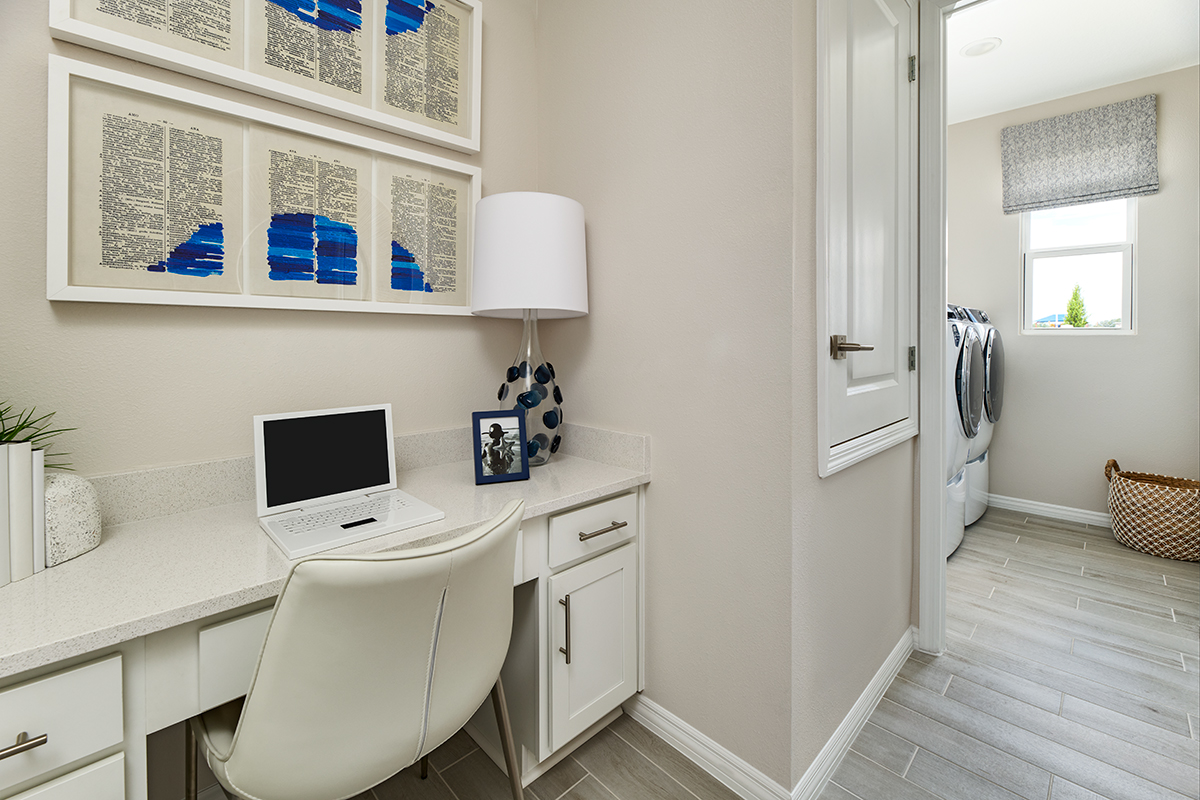
In many households nowadays, more than one person works or studies from home. In such cases, a single office may not be sufficient. Homes with a second flexible-use room or a tech center/pocket office to accommodate additional work areas may come in handy.
Creative solutions, like built-in desks in hallways or bedrooms, can also make a big difference. While compact, these areas can be highly functional for quick tasks or short meetings, especially if privacy isn’t critical. When each household member has a designated place to work or study, everyone benefits from fewer interruptions and better concentration. These separate zones allow household members to focus independently and avoid distractions, contributing to a more harmonious and productive work environment.
A floor plan that minimizes distractions
The layout of a home plays a critical role in supporting a productive workday. Not all distractions can be eliminated, but the right layout can make a significant difference in how well a home supports focused work. Noise from the kitchen, children playing, or other household activities can be disruptive. Homes with thoughtful layouts can potentially provide better separation and allow you to focus on job-related tasks.
Newer homes often offer extra insulation or more thoughtfully designed living spaces that can reduce ambient noise, making them ideal for video conferencing and other focused tasks. More spacious floor plans can also, in general, be configured to reduce potential in-home distractions.
Outdoor spaces that can be double as work areas
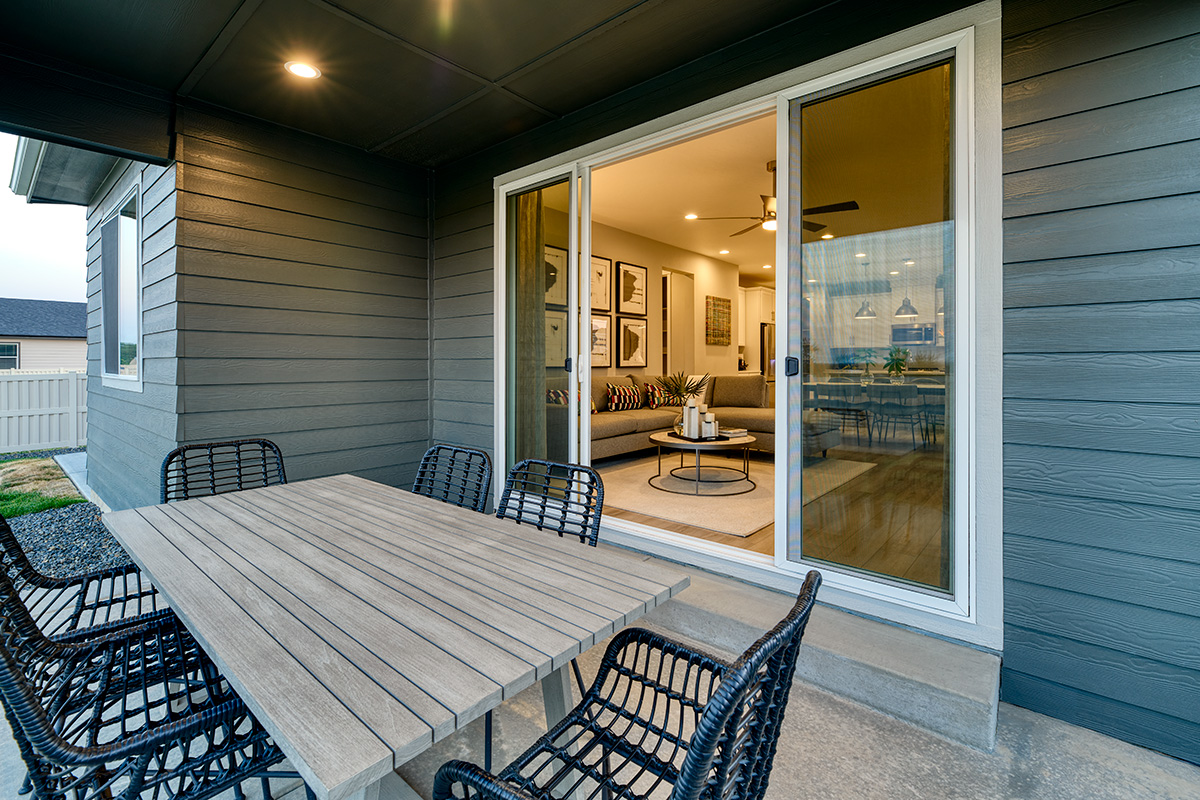
Sometimes the best way to stay productive is to step away from your desk and change your scenery—without actually leaving home. Outdoor workspaces like covered patios or rooftop terraces can provide a welcome change of pace and a mental reset, especially during long days filled with virtual meetings or demanding projects. Being able to change up your work environment—even temporarily—can help prevent burnout. Outside offices can be ideal for phone calls, brainstorming sessions, or even full work blocks if they’re equipped with access to power outlets and within Wi-Fi range.
The opportunity to enjoy fresh air and natural surroundings, even briefly, has been proven to spark creativity and relieve stress. Even 30 minutes spent working outside can help reset your mental focus and eliminate anxiety. If you live in a climate with changing seasons, look for transitional spaces like enclosed patios or sunrooms that allow you to enjoy natural light year-round.
Smart storage options
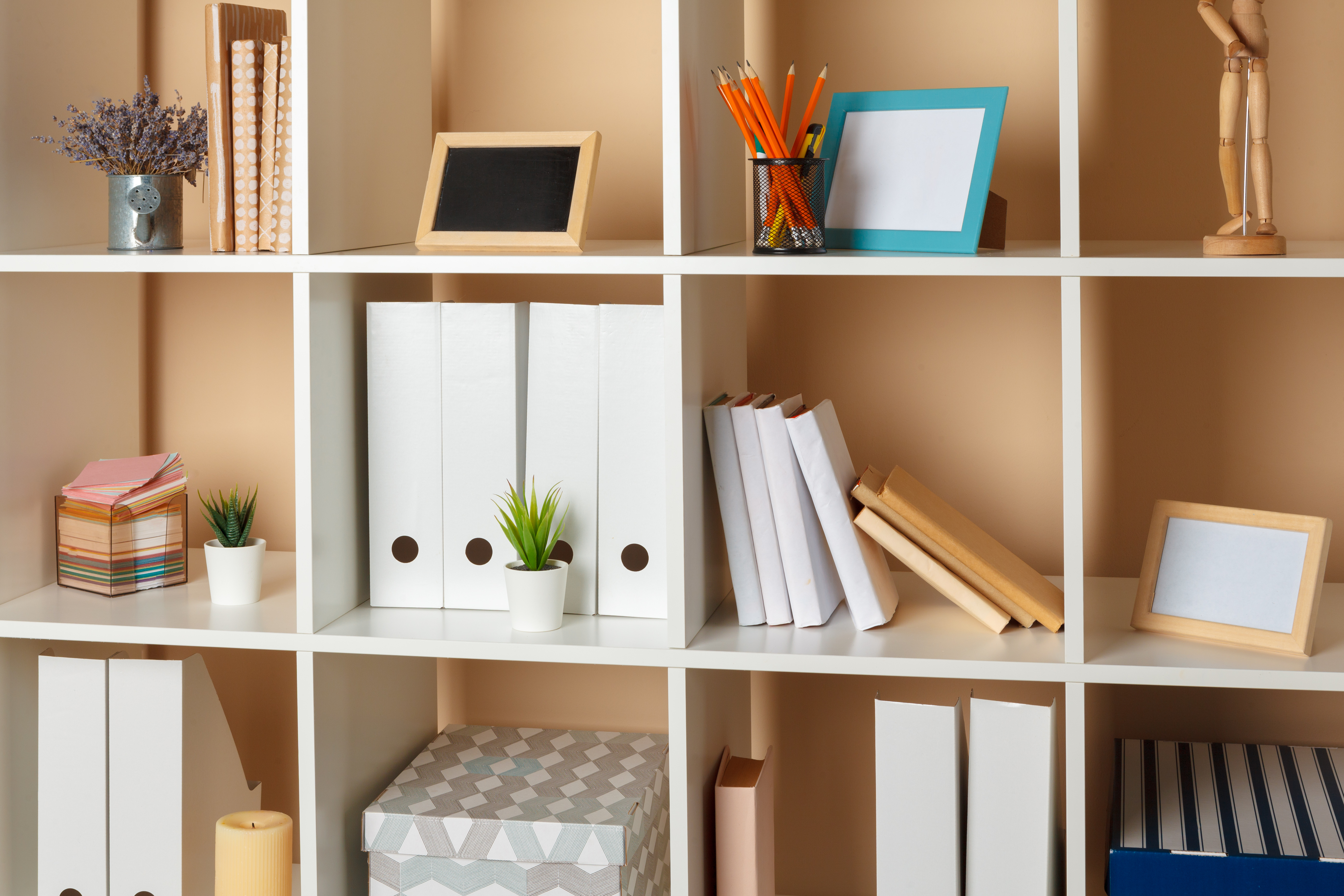
One of the most commonly overlooked work from home essentials is storage. A cluttered environment can easily become overwhelming, especially when your home doubles as your office. Smart storage solutions help keep your workspace tidy, reduce mental distractions, and support your overall well-being. As you evaluate potential homes, look for those that include abundant shelving, spacious closets near work zones, and areas designed with cable and wire management in mind as an organized environment supports both mental health and long-term productivity.
If built-in storage is limited, mobile solutions, such as filing cabinets on wheels, rolling carts, or lockable drawers, can provide flexibility while keeping work materials organized and out of sight. Portable storage can be just as effective and offers the added benefit of flexibility as your needs evolve over time.
Dynamic infrastructure
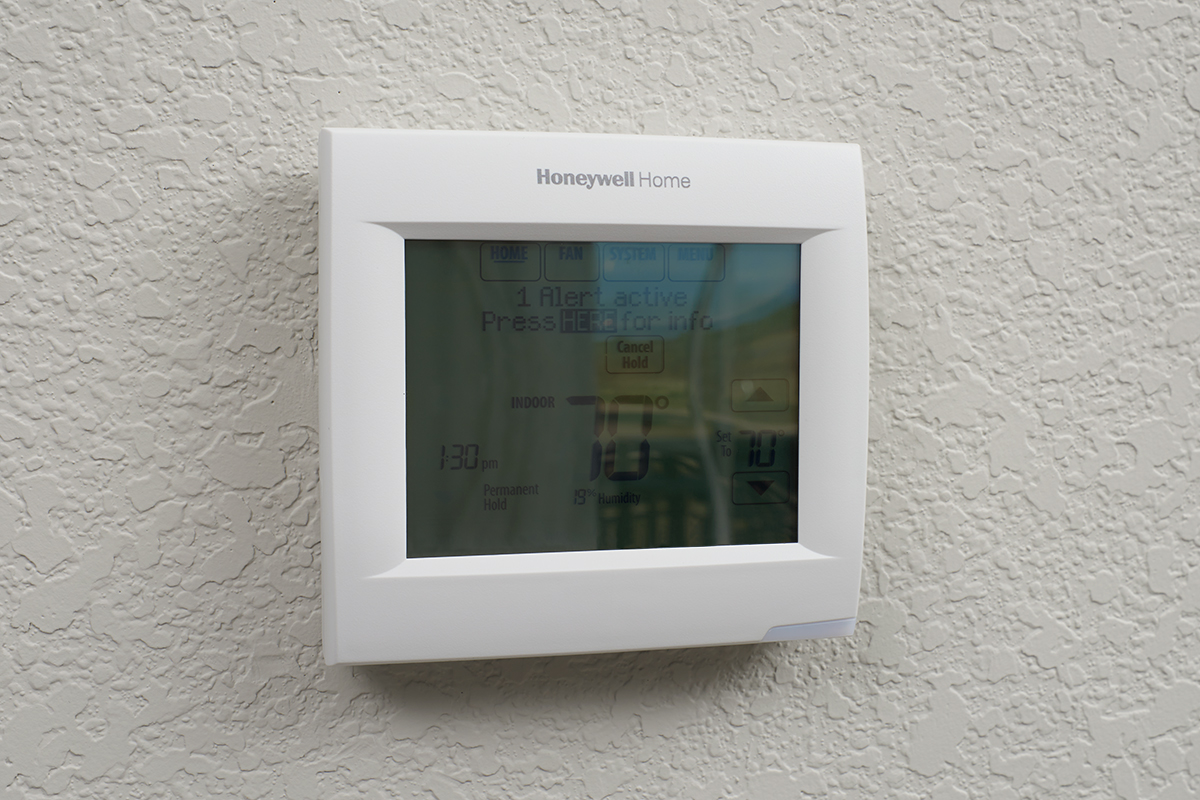
In today’s digital age, your home’s infrastructure plays a crucial role in determining how effectively you can work from home. From temperature control to digital connectivity, smart features—typically found in newer houses—can support a more comfortable, efficient, and focused workday.
Homes with smart thermostats, for example, allow you to maintain a comfortable temperature for enhanced concentration. Video doorbells and smart locks enhance home security while minimizing interruptions during meetings or focused work time.
Voice-controlled assistants, energy-efficient appliances, and pre-wired outlets for tech upgrades all contribute to a home that functions as a seamless digital workspace. Homes with the EPA’s Indoor airPLUS label prioritize healthier indoor air by reducing pollutants, controlling moisture and improving ventilation, allowing you to breathe easier and better focus on your job while at home. These features not only improve convenience but can also save time and potentially keep you more mentally sharp throughout the day.
Flexibility for the future
The way we work continues to evolve, and your home should evolve with it. As your career changes or your family grows, your home should be able to adapt to new needs. Look for houses with extra bedrooms that could be transformed into nurseries, gyms, or creative studios down the road.
Spacious RV garages also offer long-term potential—they can be converted into fully functional home offices or specialized workspaces. Lofts, bonus rooms and basements also offer versatility as multi-use areas that blend work, rest, and recreation. Even if you don’t need these features immediately, buying a home with room to grow provides long-term value and peace of mind.
A supportive neighborhood
Working from home offers flexibility, but it can also lead to feelings of isolation—especially for those who live alone or have recently relocated. That’s why your surrounding community matters just as much as your home’s interior. Choosing a neighborhood with nearby parks, walking trails, or green spaces encourages regular movement and helps you disconnect from work when needed.
Convenient access to local cafes, community centers, or fitness facilities can provide low-key social opportunities that balance out the solitude of working from home. Even for those who enjoy alone time, a walkable neighborhood with appealing amenities can support better mental well-being and promote healthier daily habits.
If you’re new to an area or planning a relocation, it’s worth exploring the neighborhood at different times of day to see how active and friendly it feels. A well-rounded community can combat the isolation that sometimes accompanies remote work, supporting your mental health and enriching your daily routine.
Remote work offers valuable flexibility, but it also transforms how we live. When choosing a new home, think beyond a desk and Wi-Fi—look for a space that supports your work, lifestyle, and overall well-being. Prioritize features that fit your daily routine, nurture long-term goals, and help you recharge. Whether it’s a quiet study, a versatile bonus room, or a tranquil covered patio, the right environment combined with dynamic work from home essentials can set the foundation for a balanced and fulfilling remote life. Happy house hunting!
Take the guesswork out of homebuying!
Our free First-time Homebuyer Guide is filled with tips to help you navigate your homebuying journey.



